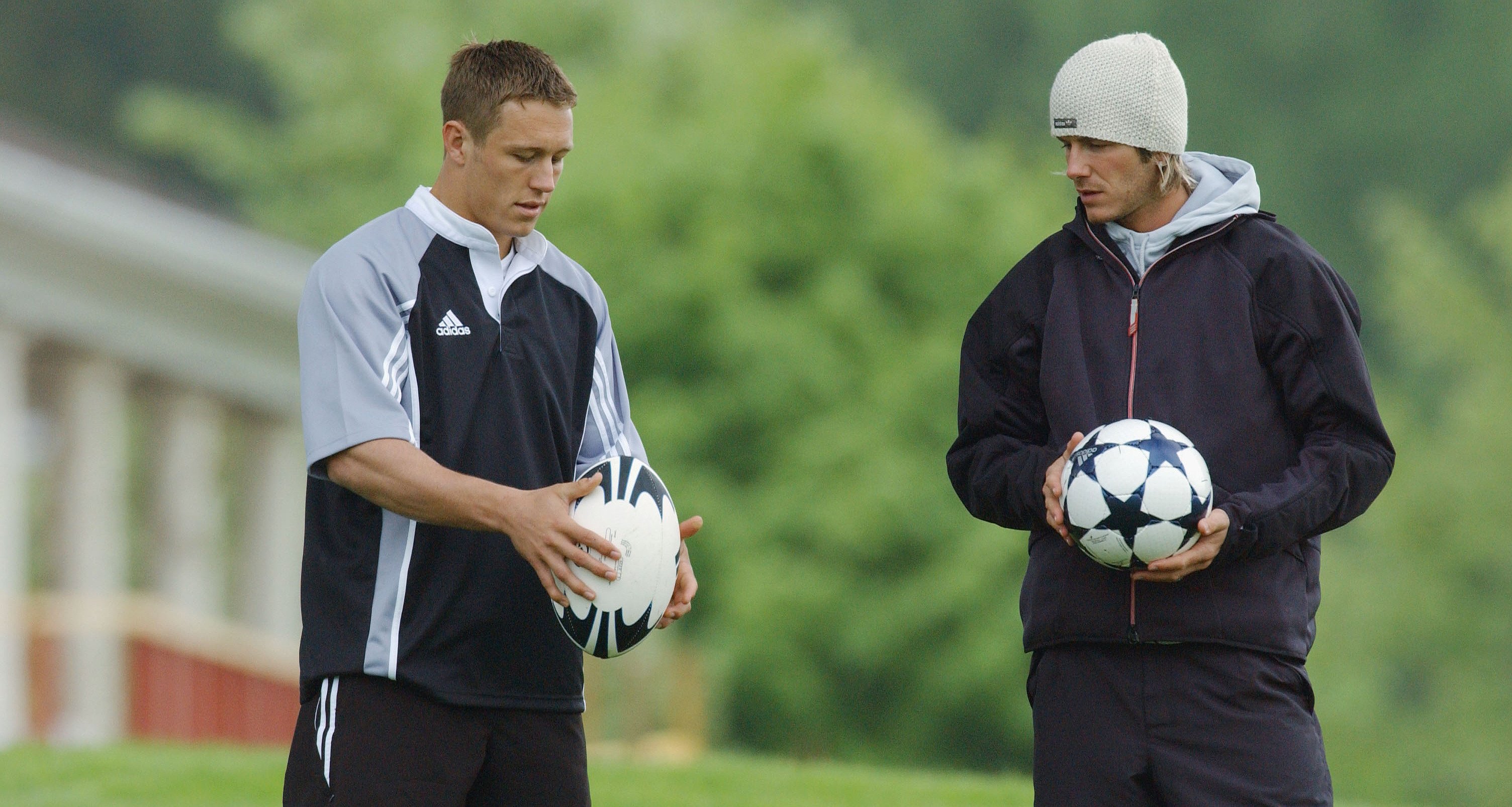After years of procrastination, football is finally turning to rugby for inspiration

The legend goes that it was in 1823 that William Webb Ellis “with a fine disregard for the rules of football as played in his time, first took the ball in his hands and ran with it”, and rugby was born.
Last week, 194 years after our game took so much from football, the International Football Associations Board (IFAB) launched their new “Play Fair” initiative. A programme that looks to improve their game, and it seems in many ways, to make it more like ours.
The “Play Fair” initiative lays out three main improvements. Player behaviour, playing time, and increasing fairness. In all of these, they’ve found parallels to rugby.
The IFAB & @FIFAcom announce new initiative to improve fairness & image of the game – find out more about #playfair! https://t.co/4FcBbn6mDi pic.twitter.com/P7zziWiX5w
— The IFAB (@TheIFAB) June 15, 2017
One of the most noticeable changes is the long awaited roll out of video refereeing. To us it’s the TMO, to them, the VAR.
Having in the past been trialed in youth and amateur competitions, the Video Assistant Referees have launched onto the world stage at the Confederations Cup, FIFA’s preparation tournament for next years World Cup in Russia.
FIFA president Gianni Infantino spoke positively about the technology this week, saying he was “extremely happy with VAR so far” and felt the Confederations Cup “is a milestone tournament.”
So far the VAR system has disallowed goals, and resulted in the retrospective sending off of a player. It’s safe to say there’s been controversy over its effect on the game, fans and players alike have voiced their opinions with the distinctive tone of disrespect we associate with football.
#MEXNZL is the single worst game for officiating I have ever seen, the officials have made a complete mockery of football let alone VAR..
— james farmer (@jefarmer1987) June 21, 2017
It’s this tone that the IFAB are attempting to address with more of their initiatives. Proposals are in place to follow rugby’s lead and make the captain the only line of communication with the referee. With this they hope to stamp out any argumentative attitude in players and promote respect for the referee and the game.
This positive attitude has seen football look again to rugby, although unsuccessfully, in failed trials of a sin bin system for yellow card offences. The project at England’s performance training centre was canned after being said to impact on the style of game too heavily.
Rugby’s final gift to football is one that aims to do the opposite and help the game flow as much as possible. The IFBA proposed last week to shorten halves from 45 minutes to 30, and in doing so changing from their current timing system to rugby’s.
The game at this moment have 25 minutes of effective playing time per half so you would actually see more football! https://t.co/0UrEAnKv2W
— Petr Cech (@PetrCech) June 17, 2017
In rugby, whenever the game stops, so does the clock. In football, the clock continues and “injury time” is added to the end of the half. However, statistically each half of football only sees between 23 and 26 minutes of effective play, from an average 48 minute half.
The IFBA’s proposal is an attempt to help the game flow and to speed it up. They hope that avoiding the time wasting that causes such a lack of effective play will lead to more time for football and a more exciting game.
It seems the two sports have gone full circle. Almost 200 years after the two sports diverged from a shared parentage, football has begun to implement some of the best parts of rugby to address some of the worst parts of their game. It’s great to see such positive interaction between sports that historically are chalk and cheese. These innovations are to football’s gain, but who’s to say rugby won’t again learn from other sports in the future.














































